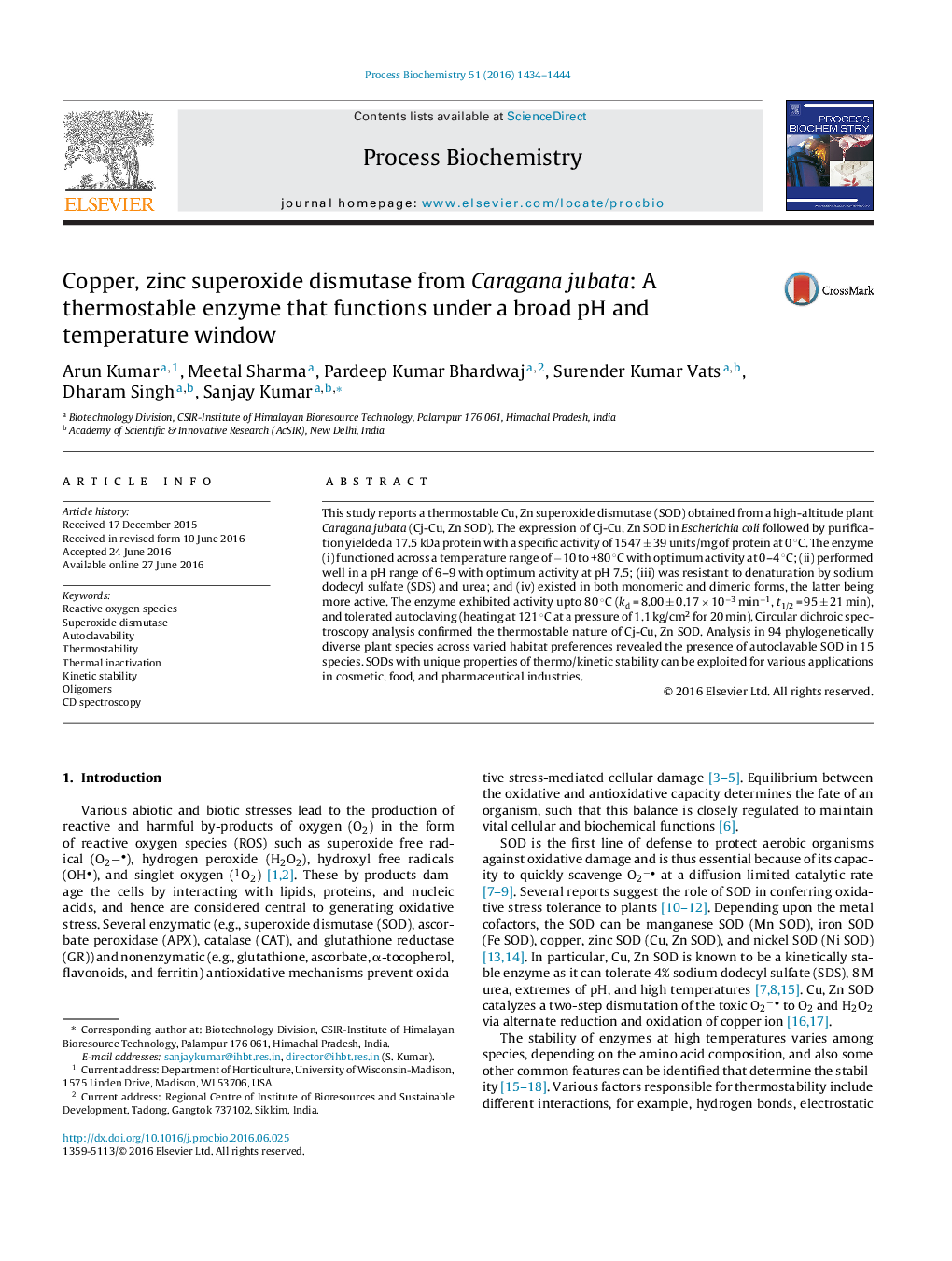| Article ID | Journal | Published Year | Pages | File Type |
|---|---|---|---|---|
| 6453001 | Process Biochemistry | 2016 | 11 Pages |
â¢A highly thermostable Cu, Zn superoxide dismutase (SOD) was cloned and characterized from Caragana jubata.â¢This enzyme tolerated autoclaving and operated under a broad window of temperature and pH.â¢The half-time of thermal inactivation for Cj-Cu, Zn SOD was 95 ± 21min.â¢Resistance to sodium dodecyl sulfate (SDS) binding, urea, and heat denaturation suggested its kinetic stability.â¢Further analysis of 94 phylogenetically diverse plants revealed the presence of autoclavable SOD in 15 species.
This study reports a thermostable Cu, Zn superoxide dismutase (SOD) obtained from a high-altitude plant Caragana jubata (Cj-Cu, Zn SOD). The expression of Cj-Cu, Zn SOD in Escherichia coli followed by purification yielded a 17.5 kDa protein with a specific activity of 1547 ± 39 units/mg of protein at 0 °C. The enzyme (i) functioned across a temperature range of â10 to +80 °C with optimum activity at 0-4 °C; (ii) performed well in a pH range of 6-9 with optimum activity at pH 7.5; (iii) was resistant to denaturation by sodium dodecyl sulfate (SDS) and urea; and (iv) existed in both monomeric and dimeric forms, the latter being more active. The enzyme exhibited activity upto 80 °C (kd = 8.00 ± 0.17 Ã 10â3 minâ1, t1/2 = 95 ± 21 min), and tolerated autoclaving (heating at 121 °C at a pressure of 1.1 kg/cm2 for 20 min). Circular dichroic spectroscopy analysis confirmed the thermostable nature of Cj-Cu, Zn SOD. Analysis in 94 phylogenetically diverse plant species across varied habitat preferences revealed the presence of autoclavable SOD in 15 species. SODs with unique properties of thermo/kinetic stability can be exploited for various applications in cosmetic, food, and pharmaceutical industries.
Graphical abstractDownload high-res image (145KB)Download full-size image
